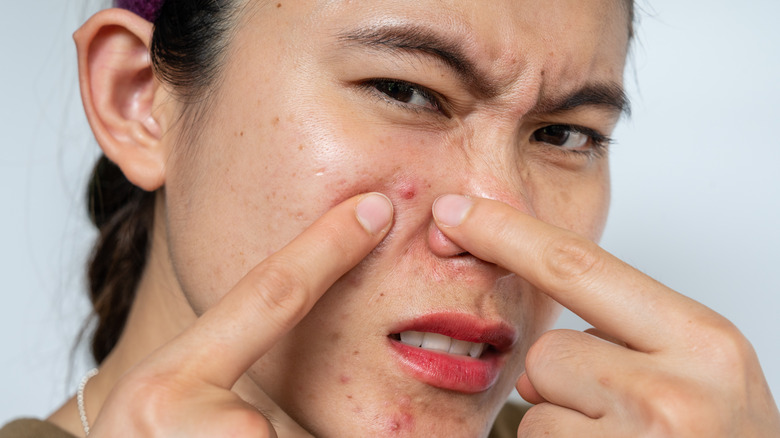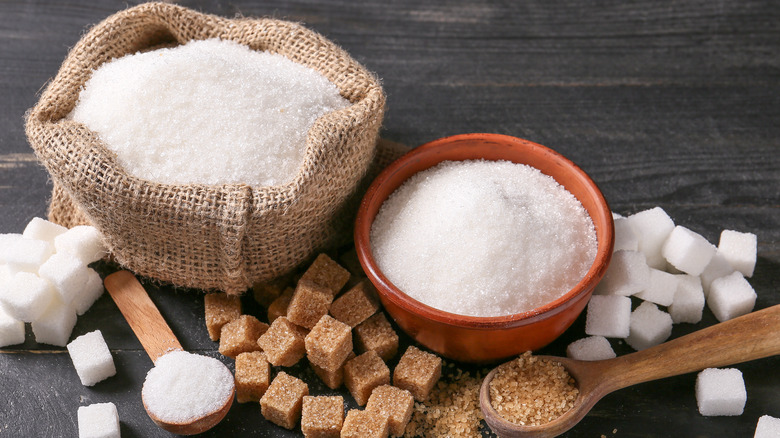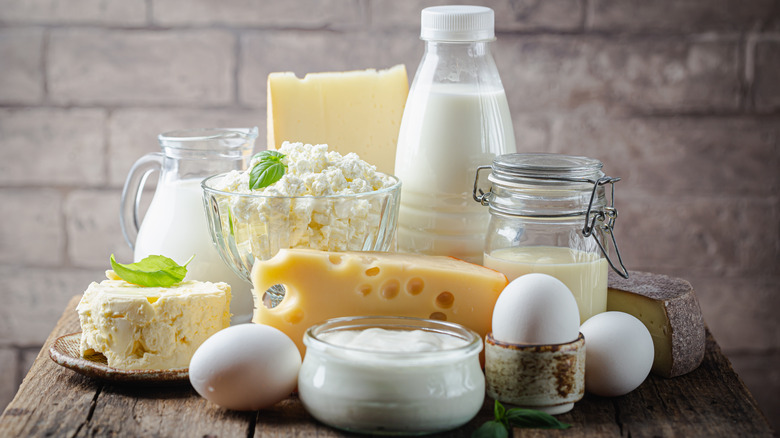How Your Diet Can Improve Hormonal Acne
If you're a part of the 80% of the population that has struggled with acne, then chances are you've also done feverish research on miracle cures (via Healthline). There are masks, serums, supplements, and all kinds of things marketed toward ridding the skin of acne once and for all — but which ones can be trusted? It turns out that the easiest place to look for an acne cure may just be your dinner table.
Hormonal acne, put simply, is "adult" acne. According to the Cleveland Clinic, hormonal acne affects adults from the ages of 20-50, can show on the face, chest, shoulders and back, and "is linked to the overproduction of sebum, which clogs pores, leading to pimples." There are many things that can affect the presence and level of hormonal acne, including pregnancy, menstrual cycles, genetic/family history of acne, etc. However, there are a few changes you can make to your routine that can help treat the acne you have and maybe prevent future breakouts.
Reduce fat and sugar intake
In a July 2020 study by Harvard Health, 24,000 adults with a wide range of acne conditions completed a 24-hour dietary survey. Though the results were not totally conclusive, researchers found a correlation between adults in the survey afflicted with acne and regular consumption of foods and beverages high in fat and sugar. According to the findings of the study, respondents who had acne at the time of the survey were 54% more likely to have a high-fat, high-sugar diet than those who did not have acne at the time of the survey.
Consistently consuming sugary foods and beverages can lead to an increase in insulin, the hormone that regulates sugar in the bloodstream (via Healthline). With fluctuation in regulatory hormones like insulin typically comes, you guessed it, hormonal acne. By cutting back on foods high in sugar and fat, such as soda, white bread, candy, sugary cereals, etc., you can prevent a spike in insulin and possibly control hormonal acne.
Cut down on dairy
We've all heard the age-old advice to help treat acne-prone skin: steer clear of chocolate. While chocolate on its own may not have the effect on skin our grandmothers thought it did, there is evidence that the consumption of milk and other dairy products can be a contributor to acne. According to Healthline, dairy promotes insulin production and fluctuation just like high-sugar and high-fat foods and beverages, which can lead to acne.
According to a review of 14 studies that included over 70,000 subjects ranging from ages 7-30, participants who consumed dairy products such as milk, cheese, and yogurt, were found to have a "greater risk" of acne. A two-month study of 30 participants ages 18-45 concluded that the regular consumption of whey protein, a protein derived from milk, was similarly linked to the onset of acne. Cutting out dairy aids in the regulation of blood sugar necessary for controlling hormonal acne.


